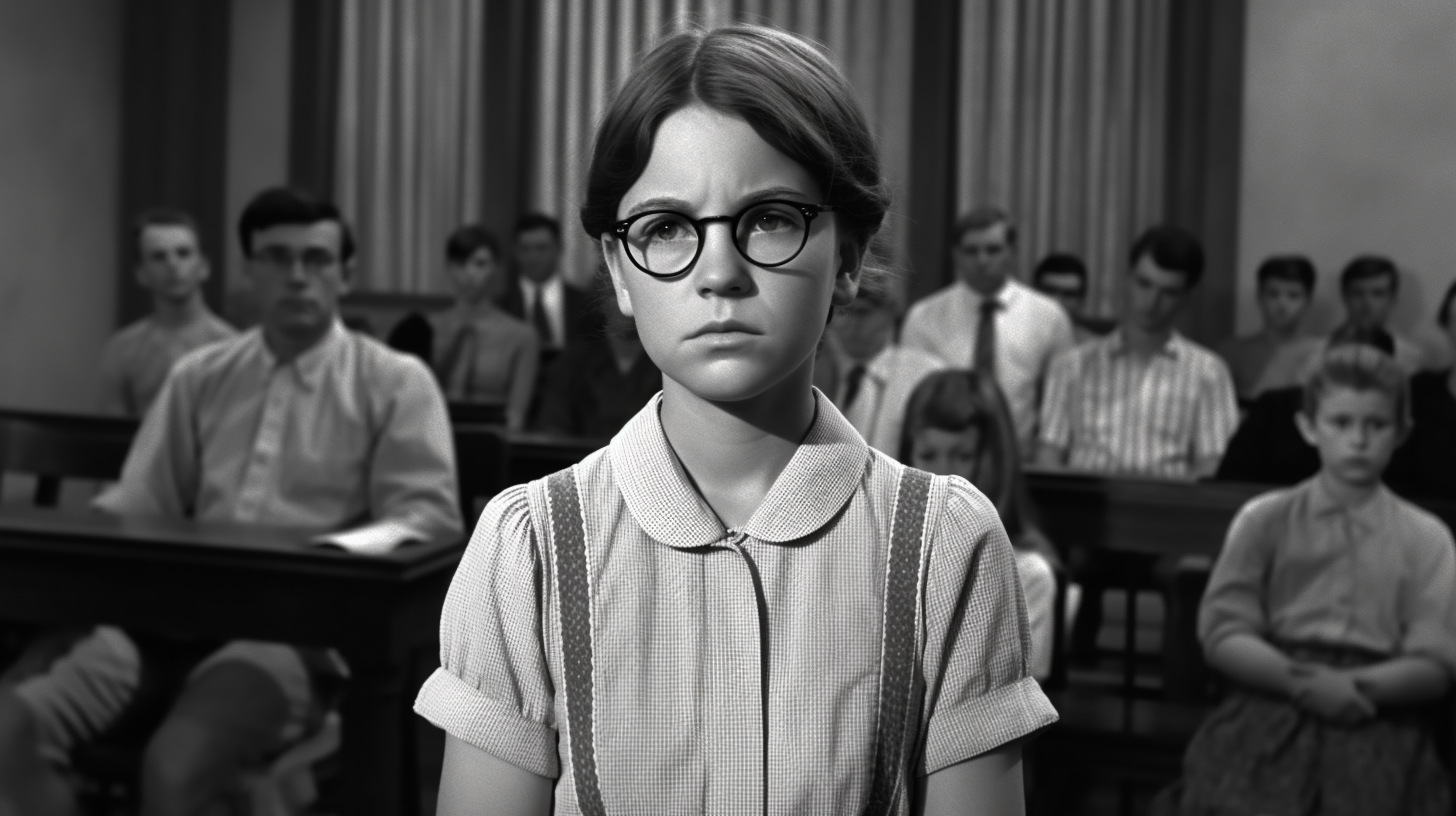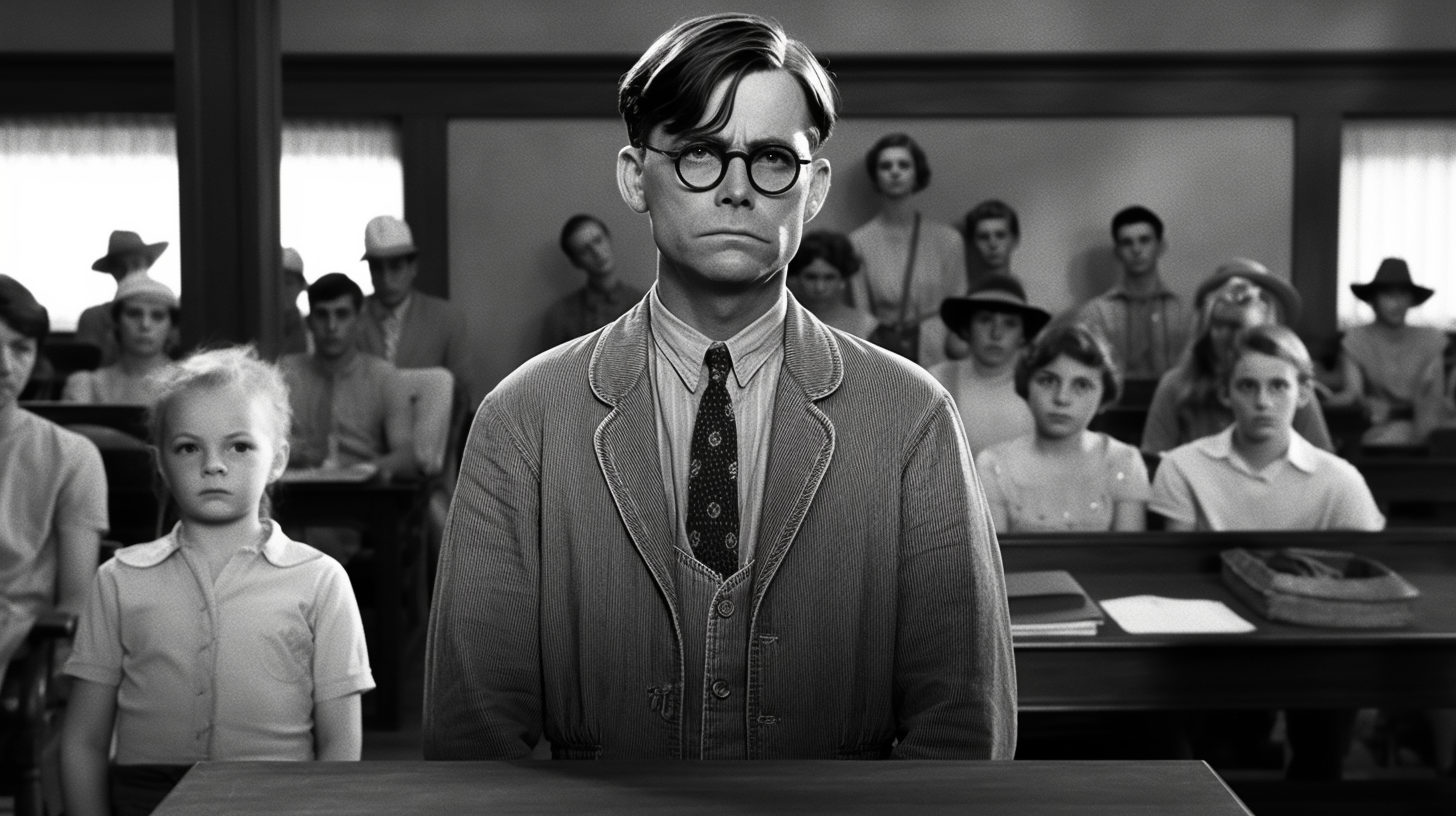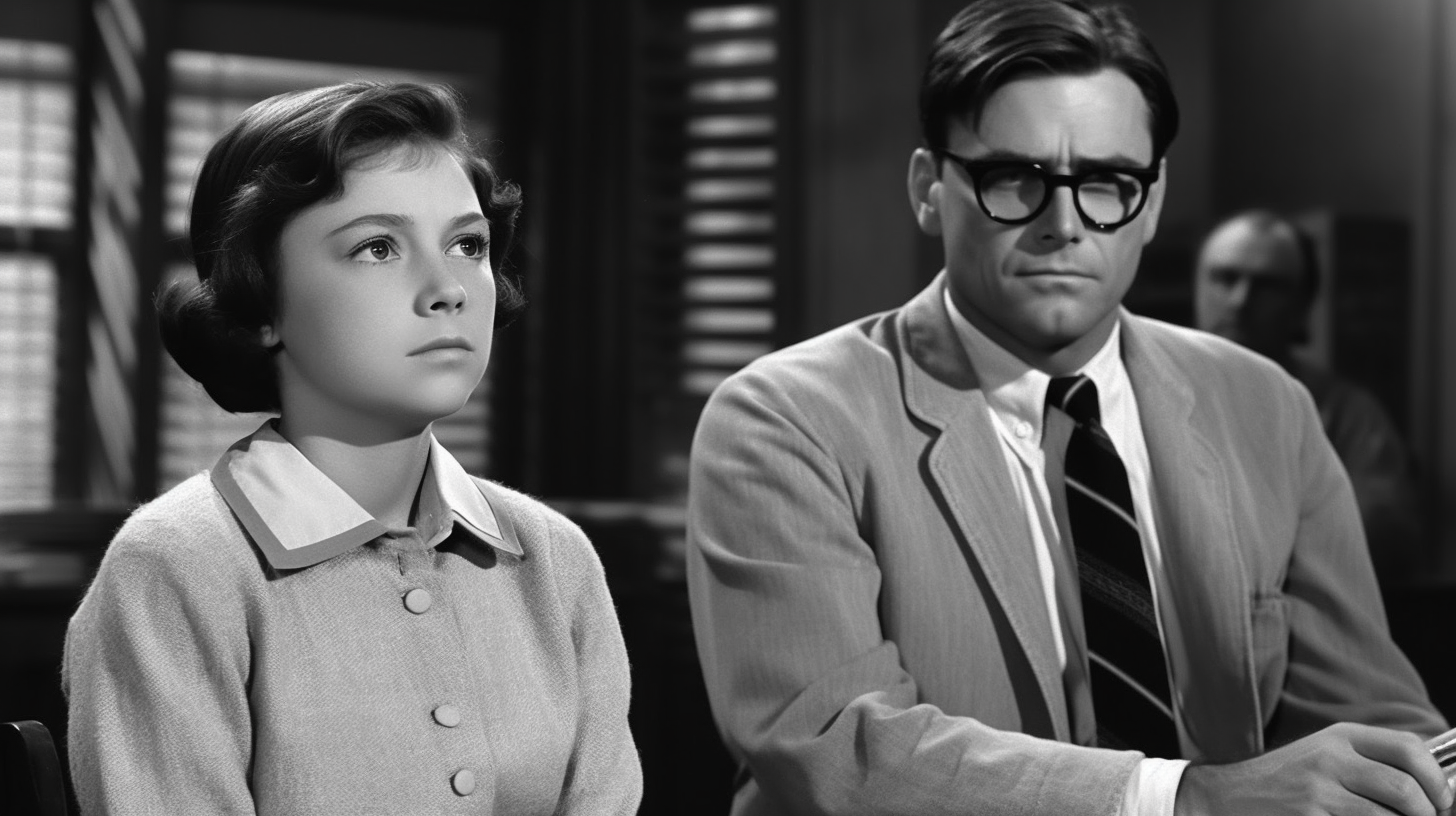The Portrayal of Justice in Harper Lee's 'To Kill a Mockingbird'
In Harper Lee's relentless work, To Kill a Mockingbird, the visage of justice emerges, steadfast and unwavering, mirroring our flawed human condition. With her brilliant prose, Lee deftly unveils the intricate interplay between justice and its elusive embodiment in Maycomb.
Lee's narrative orbits the lives of Scout, Jem, and Atticus Finch, encapsulating the tumultuous struggle for justice in an era of prejudice and discrimination. Through Scout's eyes, we witness the disturbing disjunction between societal expectations and the stark realities of injustice.

Atticus Finch, a paragon of virtue and unwavering resolve, assumes the mantle of the moral compass, guiding the narrative's trajectory. His commitment to fairness and equity, a beacon of hope amidst the murky fog of prejudice, manifests through his words and actions. Atticus's courtroom prowess and his eloquence in interrogating witnesses expose the fabric of deceit within Maycomb's dark underbelly.
The trial of Tom Robinson, a black man falsely accused of a heinous crime, becomes a battleground for the forces of justice and prejudice to clash. Atticus, armed with his unwavering conviction, navigates the treacherous waters of a profoundly biased society, seeking to unearth the truth. Yet, despite his passionate arguments and the evident frailty of the prosecution's case, the scales of justice remain tipped, burdened by the weight of prejudice.
Lee's prose intertwines the perspectives of Scout, Jem, and Atticus, reflecting the multifaceted nature of justice's pursuit. Scout's innocent eyes become a prism through which we perceive the grotesque contours of injustice. Yet, through her youthful curiosity and blossoming awareness, we discern the potential for transformation and enlightenment, even in the face of overwhelming darkness.

Buried within the narrative's folds lies the enigmatic presence of Boo Radley, a reclusive figure shrouded in mystery. Boo serves as a subtle symbol of compassion and humanity, a counterpoint to the cruelty that stains the social fabric of Maycomb. His quiet acts of benevolence reverberate through the narrative, offering a glimpse of the redemptive power of empathy and understanding.
While ostensibly a tale set in a bygone era, Harper Lee's opus resonates with timeless relevance. It is a haunting reminder that the struggle for justice is perennial, transcending the confines of time and place. By unraveling the threads of injustice, Lee beckons us to confront our prejudices and strive for a more equitable society.

Our take: To Kill a Mockingbird is an enduring testament to the perennial importance of justice in our collective human experience. Lee's narrative craftsmanship and astute social commentary elevate the work beyond a mere courtroom drama. Instead, it compels us to examine our biases and prejudices, reminding us of the redemptive potential within each individual. In this exploration, we glimpse the Good (καλός)—the profound beauty of empathy, compassion, and the tireless pursuit of justice.

Plato Re-Imagined
This course offers 32 comprehensive lectures exploring most of Plato's dialogues. These lectures guide students toward a consilient understanding of the divine—a concept that harmonizes knowledge across disciplines and resonates with secular and religious leaders. As a bonus, Lecture #33 focuses on consilience, demonstrating how different fields of knowledge can converge to form a unified understanding.






